Publications
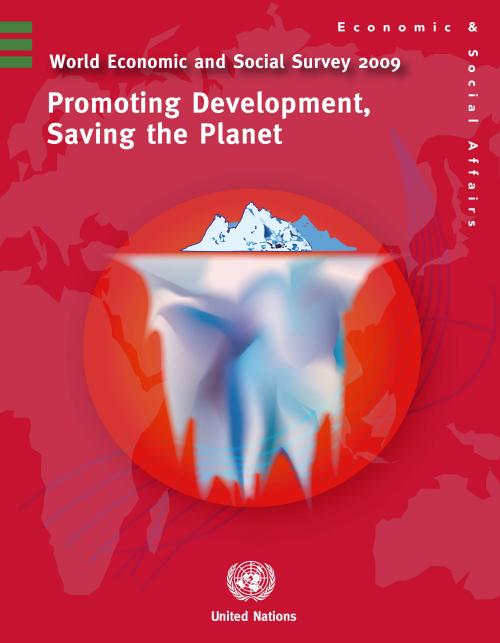
The central message of the World Economic and Social Survey 2009 is that addressing the climate challenge cannot be met through ad hoc and incremental actions. In the first place, it requires much stronger efforts by advanced countries to cut their emissions. The fact that in this regard more than a decade has been lost since the adoption of the Kyoto Protocol to the United Nations Framework Convention on Climate Change only adds urgency to those efforts. However, even if advanced countries begin to match their words with deeds, their efforts are, by themselves, unlikely to be sufficient to meet the climate challenge. The active participation of developing countries is now required and…
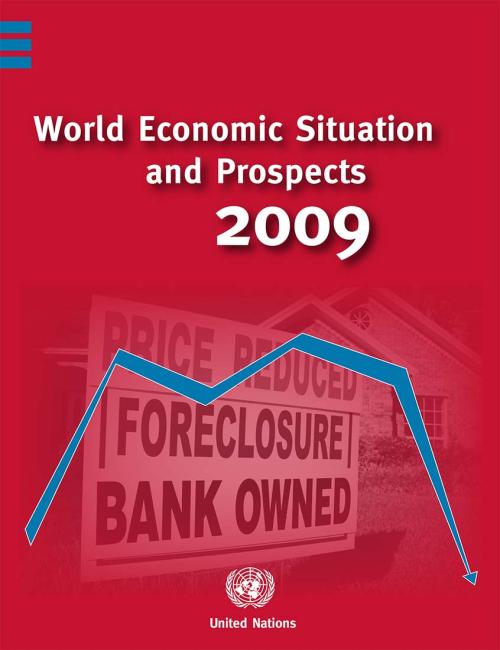
Faced with the worst recession since the Second World War, the United Nations baseline forecast for world economic growth has been revised downward compared with the pessimistic scenario of the World Economic Situation and Prospects 2009 published in January. The world economy is expected to shrink by 2.6 per cent in 2009, after an expansion of 2.1 per cent in 2008 and nearly 4 per cent per year during the period 2004-2007. While a mild recovery is expected in 2010, risks remain on the downside. Developing countries are disproportionately hard hit by the crisis.
The global policy response has been unprecedented, including monetary, financial and fiscal measures to stabilize…
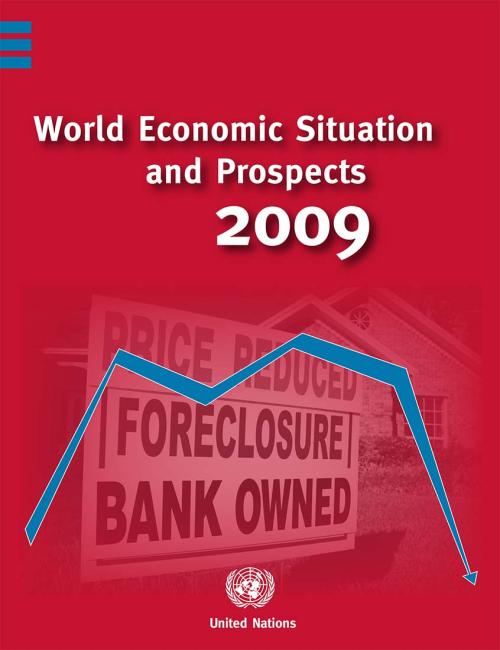
The world economy is mired in the worst financial crisis since the Great Depression. What first appeared as a sub-prime mortgage crack in the United States housing market during the summer of 2007 began widening during 2008 into deeper fissures across the global financial landscape and ended with the collapse of major banking institutions, precipitous falls on stock markets across the world and a credit freeze. These financial shockwaves have now triggered a full-fledged economic crisis, with most advanced countries already in recession and the outlook for emerging and other developing economies deteriorating rapidly, including those with a recent…
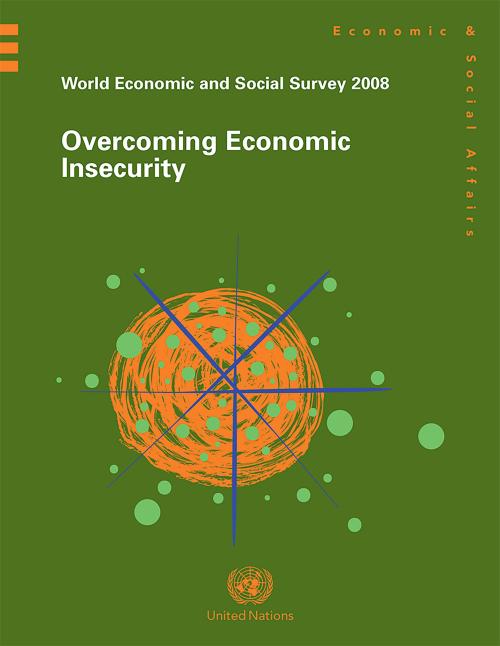
According to the 2008 World Economic and Social Survey, economic insecurity arises from the exposure of individuals, communities and countries to adverse events, and from their inability to cope with and recover from the downside losses. The risk and threats vary from community to community; in advanced countries, they have been associated with a significant rise in inequality, a hollowing out of middle-class lifestyles and reduced welfare protection. Elsewhere, economic shocks and premature deindustrialization have raised fears of an insufficiency of the formal sector jobs needed to accommodate an expanding urban population. In still other places, food insecurity has given rise to…
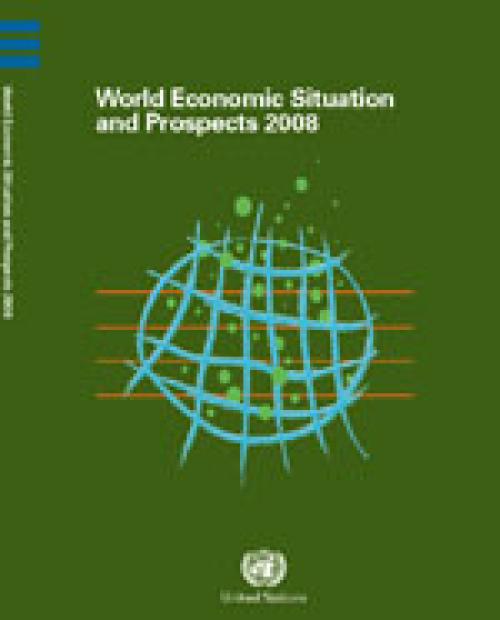
In the wake of turbulence in the economic environment, the United Nations baseline forecast for world economic growth has been revised downward in line with the pessimistic scenario of World Economic Situation and Prospects 2008 published in January. The deepening credit crisis in major developed market economies, as triggered by the continuing housing slump, the declining value of the United States dollar vis-à-vis other major currencies, persisting global imbalances, and soaring oil and non-oil commodity prices are slowing growth of the global economy.
Global growth reached 3.8 per cent in 2007 but is expected to decline markedly to 1.8 per cent in 2008, with the weakness likely…
The MDG Gap Task Force has assessed the global commitments contained in the framework of the Millennium Development Goals (MDGs) ratified by Governments as the various international events that followed the Millennium Summit. The United Nations Millennium Declaration emphasized that strengthened global partnerships for development were needed to provide the enabling environment for accelerating progress in reducing poverty, improving health and education, establishing gender equality and ensuring the protection of the environment as defined in the MDGs.
The main message of the present report is that while there has been progress on several counts, important gaps remain in…
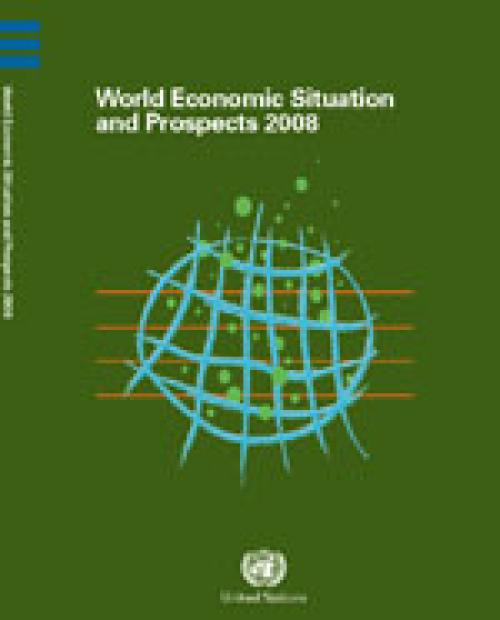
The World Economic Situation and Prospects 2008 highlights the risk of a recession in the United States and a hard landing of the global economy as a whole. The combination of a deep housing slump in the United States, continuous devaluation of the United States dollar and related increased financial turmoil could trigger an abrupt adjustment of the global imbalances, which would not only send the economy of the United States into a recession but would also lead to a hard landing for the global economy as a whole. Lessons need to be learned from the recent financial turmoil to reduce vulnerabilities to future financial stress. Responses by the central banks of the major economies have…
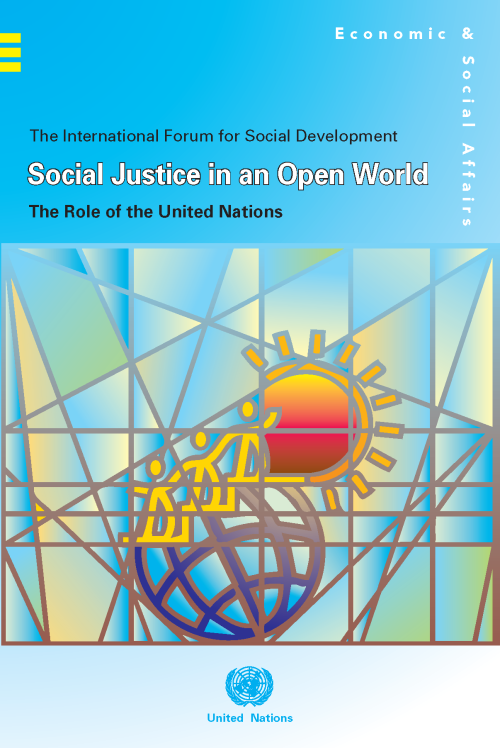
This publication provides an overview of the discussions that took place during the International Forum for Social Development, a three-year project undertaken by DESA for the purpose of promoting international cooperation for social development and supporting developing countries and social groups not benefiting from globalization. The outcomes of the meetings that took place during the Forum were also presented orally at the annual sessions of the Commission for Social Development.
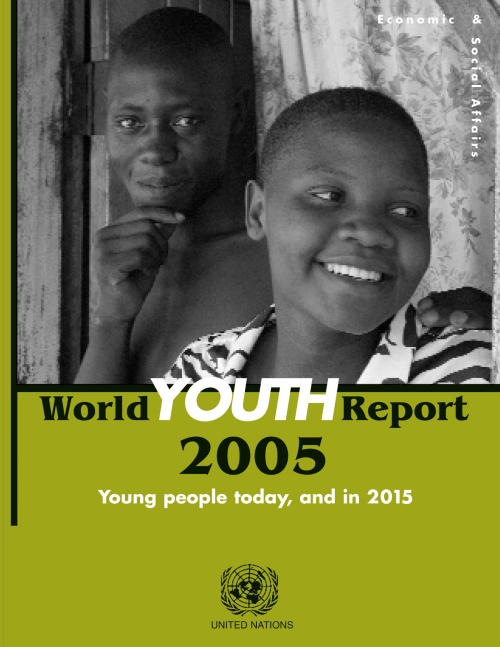
The year 2005 marks ten years since the General Assembly adopted the World Programme of Action for Youth in 1995. This report, an official report to the General Assembly, called for a renewed committment to the goals of the World Programme of Action, since over 200 million youth were living in poverty, 130 million youth were illiterate, 88 million were unemployed and 10 million young people were living with HIV/AIDS.
In the World Youth Report 2005, it is argued that too often, youth policy is driven by negative stereotypes of young people, including delinquency, drug abuse and violence. What seems to be forgotten is that young people are a positive force for development, peace,…
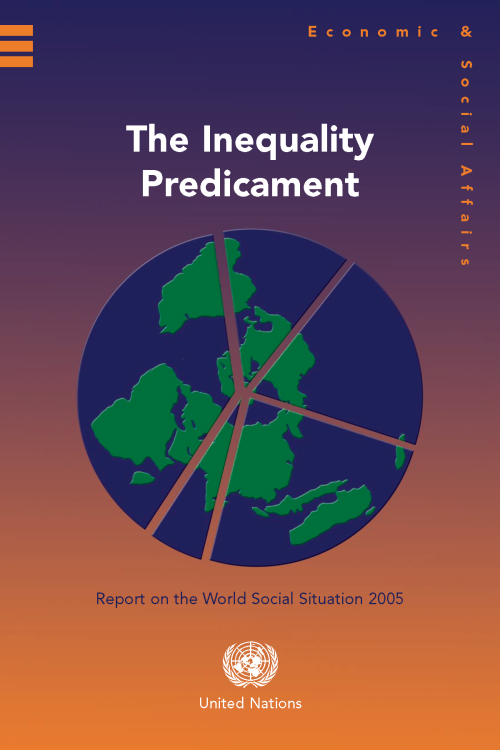
The 2005 Report on the World Social Situation: The Inequality Predicament was launched on August 25. The Report sounds alarm over persistent and deepening inequality worldwide, focusing on the chasm between the formal and informal economies, the widening gap between skilled and unskilled workers, the growing disparities in health, education and opportunities for social, economic and political participation.
The Report has been introduced by Mr. Jose Antonio Ocampo, Under-Secretary-General and Mr. Johan Schölvinck, Director, Division for Social Policy and Development, DESA on Thursday August 25, 2005.
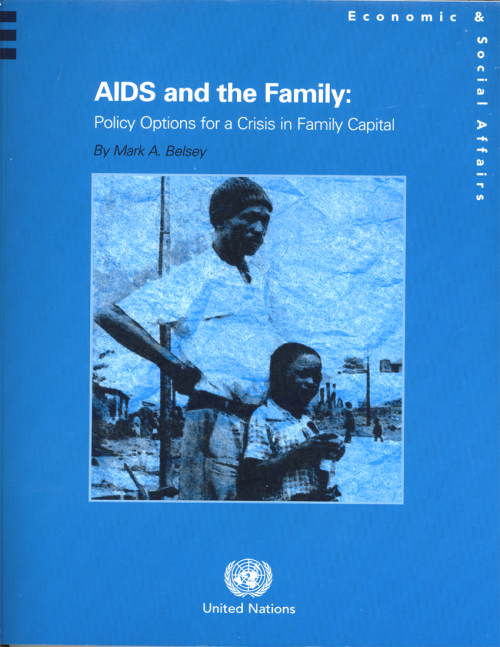
AIDS and the Family began five years ago, as a background document for the United Nations General Assembly discussions on the occasion of the Tenth Anniversary of the International Year of the Family. Intended as short overview in support of the activities of United Nations bodies and non-governmental organizations (NGOs), it was gradually expanded to include a review and analysis of the rapidly growing body of information, knowledge and international experience surrounding the HIV/AIDS epidemic.
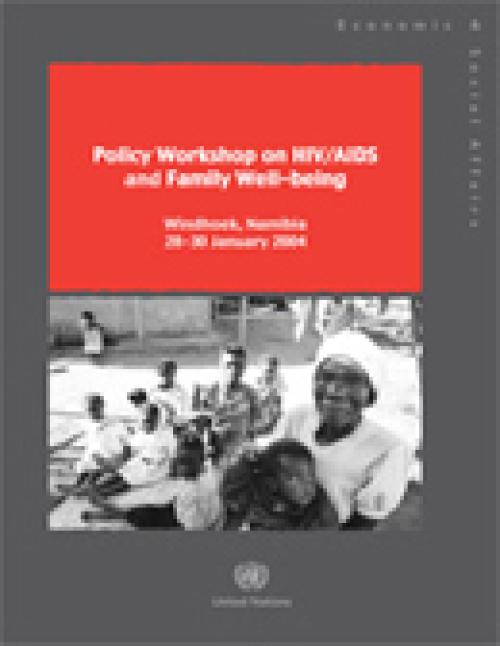
The Policy Workshop was organized by the United Nations Department of Economic and Social Affairs and hosted by the Government of Namibia, National Planning Commission Secretariat. It was held at Windhoek, Namibia. The purpose of the workshop was to bring together representatives of governments and non-governmental organizations as well as academic experts and practitioners from various countries in southern Africa to discuss the impact of HIV/AIDS on families in the region.
 Welcome to the United Nations
Welcome to the United Nations